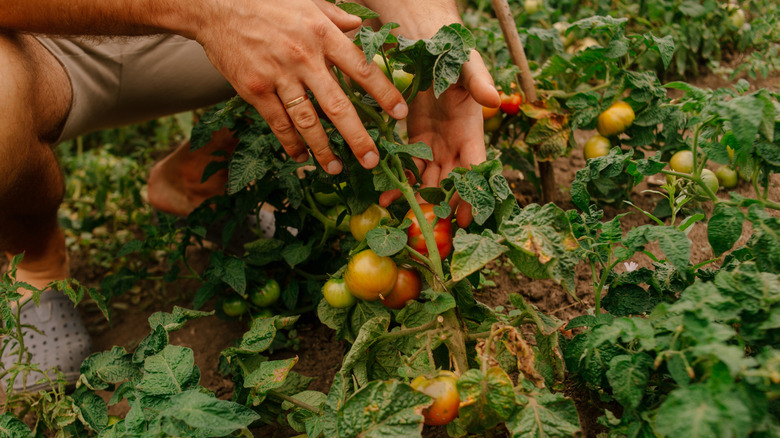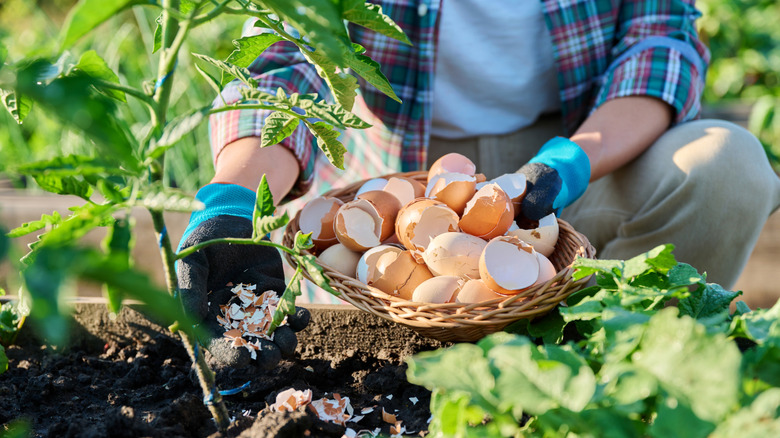Why You Should Start Sprinkling Eggshells Around Your Tomato Garden
Tomato plants can be a little dramatic, and they are strict about their requirements: water, sun, and calcium. If they don't get enough of any of them, you'll know about it and fast. But there is a bit of a strange trick that actually helps them stay healthier — and that's crushed eggshells. No longer just trash, eggshells are a perfect aid for your tomato plants.
So here's how it works. Sprinkling crushed eggshells around tomato plants helps prevent an issue called blossom end rot, where the bottom of the tomatoes turns black and mushy due to a lack of calcium in the soil. But, it turns out, eggshells are fully loaded with calcium, and so, as they break down, their calcium is leached into the soil and feeds the tomatoes with exactly what they need to grow delicious fruit for you and your family. If you're still trying to figure out how to determine the best fertilizer for healthy tomatoes, then consider eggshells a free and easy add-on that you probably throw into your trash most days anyway. And no, they don't totally replace fertilizer, but they are a fantastic addition to the tomato growing season that you already have in your home.
How to use eggshells for your tomatoes
While eggshells are helpful, they aren't magic, so throwing entire eggs or entire shells into your garden isn't going to do much on its own. To use them effectively in your garden, wash them, crush them up, and scatter them around the base of your tomato plants. You can also blend them up into water (sort of like an eggshell tea), but honestly, that isn't necessary — as long as the calcium can reach the soil, you're golden.
The shells, then, not only feed the soil but also act as a physical barrier to slugs and other soft-bodied pests that can't crawl over their sharp edges. It's one of those other unexpected uses for eggshells in your house and garden that actually makes a big difference. Two wins with one shell (three if you count the delicious breakfast you whipped up with the eggs in the morning!)
If you're making your own compost, you can use eggshells at that stage of the process, too, but you should know how to add eggshells to your compost without attracting pests. You want to rinse the shells first, then crush them up and bury them beneath other scraps of food to keep animals from sniffing. This also helps the shells break down faster, as they take their time to decompose. Once you know how to use them, eggshells support much healthier tomatoes and an overall more efficient garden; plus, it feels really good turning breakfast scraps into something useful with no extra money spent.

